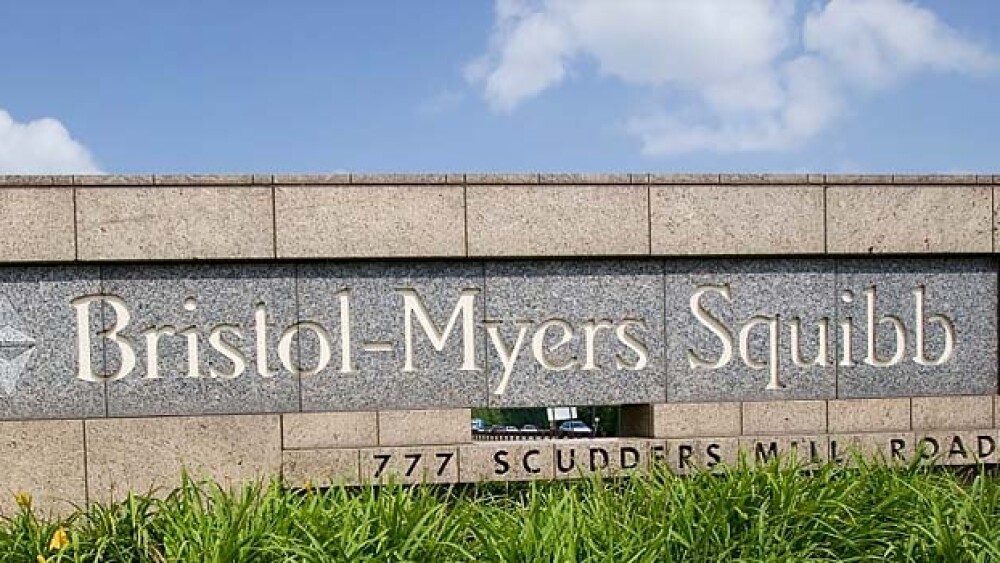A combination of Opdivo and Yervoy yielded a significantly longer treatment-free survival period for patients with previously untreated advanced or metastatic renal cell carcinoma (RCC) than patients who were treated with sunitinib, the standard of care.
A combination of Opdivo and Yervoy yielded a significantly longer treatment-free survival period for patients with previously untreated advanced or metastatic renal cell carcinoma (RCC) than patients who were treated with sunitinib, the standard of care.
Data from the Phase III CheckMate -214 study was presented by Bristol-Myers Squibb at the European Society of Medical Oncology meeting over the weekend. The study results showed that the combination of two of BMS drugs was associated with significantly longer treatment-free survival (TFS) following discontinuation of the combination compared to discontinuation of sunitinib, the standard of care, in intermediate- and poor-risk RCC patients, the company said.
Opdivo (nivolumab) and Yervoy (ipilimumab) are cornerstones of BMS immunology treatments. Opdivo, a programmed death-1 (PD-1) immune checkpoint inhibitor, has been approved for the treatment of multiple cancers, including patients with advanced renal cell carcinoma who have received prior anti-angiogenic therapy.
The primary endpoints of the trial are overall survival (OS), progression-free survival (PFS), and objective response rate (ORR) in an intermediate to poor-risk patient population, which is approximately 75 percent of patients, the company said. At the time of the trial analysis, B
Regardless of best overall response, treatment-free survival was significantly longer with the Opdivo and Yervoy combination than sunitinib, regardless of best overall response, BMS announced. Results from the trial showed that at a minimum follow-up of 30 months, 36 percent of patients who received the Opdivo and Yervoy combination were still alive and not requiring subsequent therapy vs. 16 percent of patients who received sunitinib. At the two-year mark, patients who discontinued therapy were still showing positive signs, the company said. Nineteen percent of patients who had been on the BMS combination but discontinued therapy remained treatment free, while only 6 percent of the sunitinib patients remained treatment free.
Additionally, extended TFS was observed with the combination group regardless of whether patients achieved response or disease control and across PD-L1 subgroups, BMS said.
“This latest analysis demonstrating sustained clinical benefit over time builds on the existing body of evidence from CheckMate -214 regarding superior overall survival and durable response, regardless of PD-L1 expression, and reinforces our ongoing commitment to improving outcomes for adults living with the most common type of kidney cancer,” Arvin Yang, development lead of melanoma and genitourinary cancers at Bristol-Myers Squibb said in a statement.
Renal cell carcinoma (RCC) is the most common type of kidney cancer in adults, accounting for more than 140,000 deaths worldwide each year. Clear-cell RCC is the most prevalent type of RCC and constitutes 80 percent to 90 percent of all patients. Globally, the five-year survival rate for those diagnosed with metastatic, or advanced, kidney cancer is about 12 percent, BMS said.
During the CheckMate-214 study, patients received either a combination of Opdivo and Yervoy every three weeks for four doses, followed by Opdivo alone every two weeks, or a daily dose of sunitinib for four straight weeks, followed by a two week off period before continuation of treatment.





